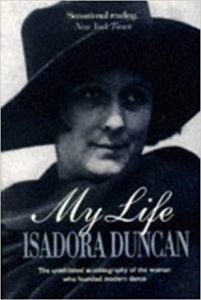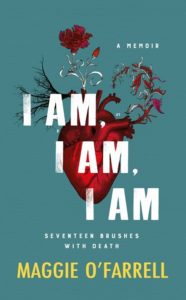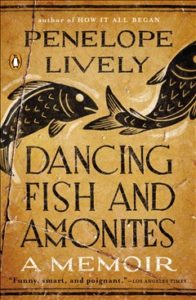 I’m pretty much a fiction reader, although I have read non-fiction over the years, mostly biography and history. I remember reading a book on the early Christian saint, Columba. I was much taken with it but I have never been able to find that book again. I also read a biography of Isadora Duncan that started an infatuation of free-wheeling arty women of the late nineteenth/early twentieth century, leading on to Katherine Mansfield and Virginia Woolf.
I’m pretty much a fiction reader, although I have read non-fiction over the years, mostly biography and history. I remember reading a book on the early Christian saint, Columba. I was much taken with it but I have never been able to find that book again. I also read a biography of Isadora Duncan that started an infatuation of free-wheeling arty women of the late nineteenth/early twentieth century, leading on to Katherine Mansfield and Virginia Woolf.
Lately, however, I’ve found myself gravitating to more non-fiction and admiring it for its writerly qualities. A book that opened my eyes was Cheryl Strayed ‘Wild’. On the face of it this was a relatively simple story about a trek along the Pacific Crest Trail in North America but Strayed made it into a riveting narrative that was tense, insightful, introspective and a wonderful invocation of place and exploration of embodiment. I couldn’t quite work out how she’d pulled it off.
After Strayed, I was dumbstruck by a book that I had dismissed because it was a bestseller (and Oprah and everyone loved it) – ‘Wild Swans’ by Jung Chang. What a staggering book this is – beautifully written and structured covering an incredible period in history (late imperial China through to post-Mao) with the unique insight of the author’s parents who were early party members (not even their loyalty or rank could protect them from the ravages of Maoism).
 After recovering from this, I stumbled on to Helen Garner’s collection of essays, ‘Everywhere I Look’. Taught, acutely observed, these essays made me realise that the pleasure of language, used with art and precision, could apply equally to non-fiction as fiction, and an essay can yield all the punch and meaning of a short story.
After recovering from this, I stumbled on to Helen Garner’s collection of essays, ‘Everywhere I Look’. Taught, acutely observed, these essays made me realise that the pleasure of language, used with art and precision, could apply equally to non-fiction as fiction, and an essay can yield all the punch and meaning of a short story.
I found this also in Maggie O’Farrell’s book ‘I Am, I Am, I Am: Seventeen Brushes With Death’. While some of these brushes with death are more serious and dramatic than others, each essay is a master class in constructing a narrative. O’Farrell brings all her fiction writing skill to bear on instilling meaning, reflection, emotion, horror and humour in these gems of stories. The first one in the collection, which deals with her encounter with a man on a lonely path by a lake who turns out to be a rapist and murderer is like a novel in miniature – what wonderful economy of style to achieve this. O’Farrell recalls all these events from the present time and so can move back and forward in time weaving around them threads of meaning. She also creates resonances between the pieces so, for example, we find out in a later essay why Maggie was sickly and bullied in school in an earlier piece. She is unsentimental about her younger self, and the reader is sometimes frustrated at her actions, but after ‘Cerebellum’ I had to reassess my reactions.
 I also thoroughly enjoyed Penelope Lively’s ‘Dancing Fish and Ammonites’ (bizarrely also published as ‘Ammonites and Leaping Fish’). Now eighty years old, Lively writes wonderfully on the trials, indignities, frustrations but also freedoms of old age. Again, a fiction writer whose prose is muscular, studied and a joy to read. She reminded me of why I love George Orwell’s essays so much (‘A Nice Cup of Tea’, for example) – wry, humorous and just so beautifully written. Lively also touches on her childhood (she wrote a wonderful autobiography around this time in Eqypt in ‘Jacaranda, Oleander’) and the essay here conveys what it was like coming back to cold and grey post-war Britain). Other sections of the book deal with her reading and writing life, and an extended essay on memory where she over-philosophises somewhat (the least interesting section for me) but, still, a writer at the top of her powers.
I also thoroughly enjoyed Penelope Lively’s ‘Dancing Fish and Ammonites’ (bizarrely also published as ‘Ammonites and Leaping Fish’). Now eighty years old, Lively writes wonderfully on the trials, indignities, frustrations but also freedoms of old age. Again, a fiction writer whose prose is muscular, studied and a joy to read. She reminded me of why I love George Orwell’s essays so much (‘A Nice Cup of Tea’, for example) – wry, humorous and just so beautifully written. Lively also touches on her childhood (she wrote a wonderful autobiography around this time in Eqypt in ‘Jacaranda, Oleander’) and the essay here conveys what it was like coming back to cold and grey post-war Britain). Other sections of the book deal with her reading and writing life, and an extended essay on memory where she over-philosophises somewhat (the least interesting section for me) but, still, a writer at the top of her powers.

